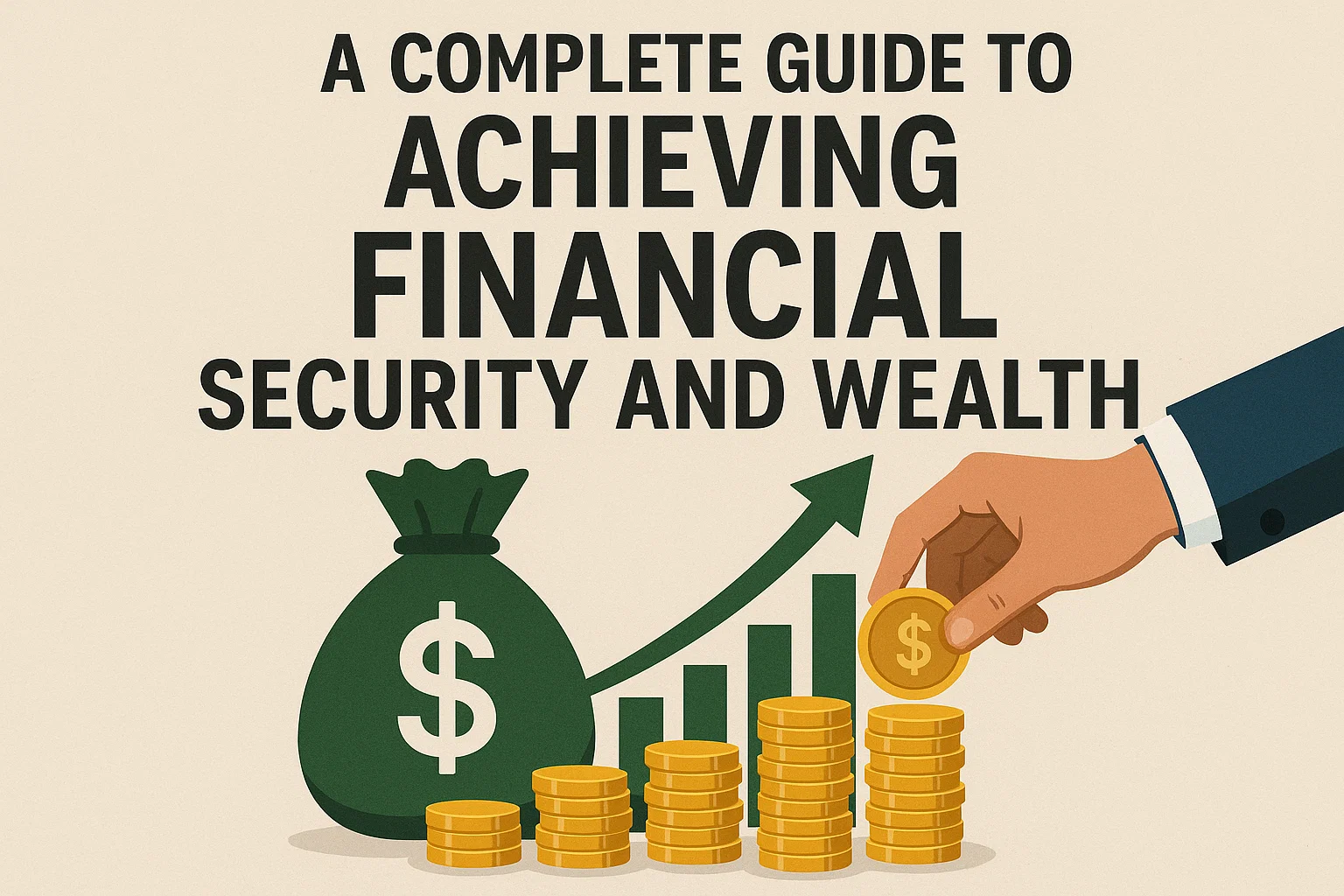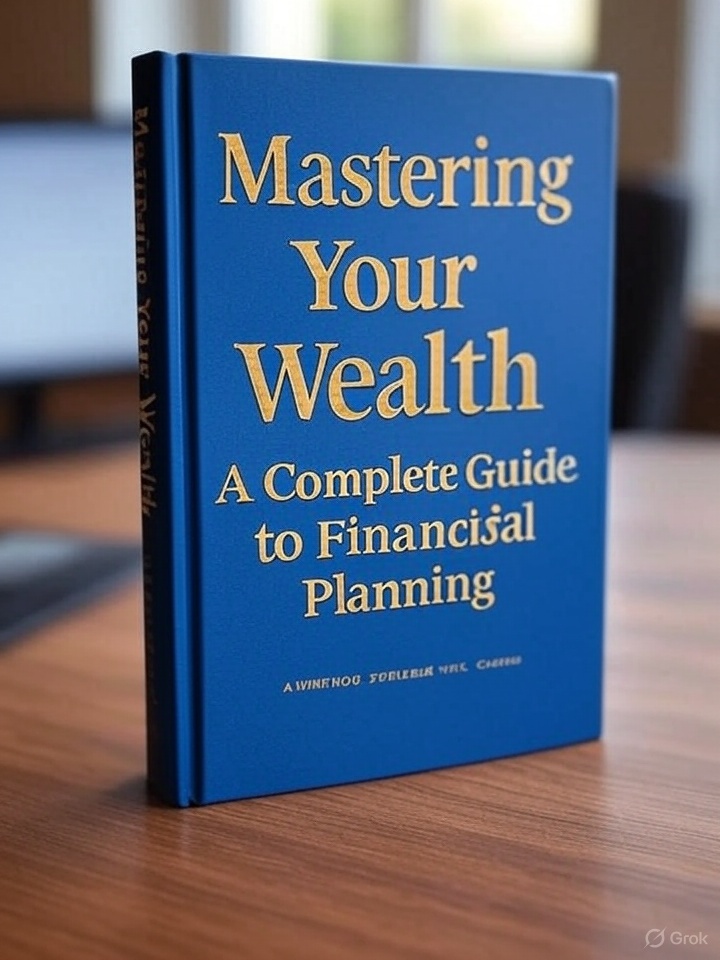1. Introduction: Understanding Financial Freedom
- Defining Financial Freedom
- Financial freedom means having enough income to cover your expenses without relying on a paycheck.
- It involves saving, investing, and making strategic financial decisions over time.
- Link: Investopedia: Financial Freedom
- Why Financial Independence Matters
- Achieving financial independence provides peace of mind, reduces stress, and offers opportunities for personal growth.
- It allows you to pursue passions and hobbies without financial concerns.
- Reference: “The Millionaire Next Door” by Thomas J. Stanley and William D. Danko.
- The Mindset Shift
- Building wealth requires a shift in mindset—from a consumption-driven mindset to one focused on saving and investing.
- Link: Psychology Today: Money Mindset
2. Creating a Personal Budget
- Understanding Your Income and Expenses
- Start by tracking all sources of income and categorizing expenses.
- Link: Mint: Budgeting Guide
- Setting Financial Goals
- Establish short-term and long-term goals to help direct your financial decisions.
- Example: Saving for a vacation vs. retirement savings.
- Reference: “Your Money or Your Life” by Joe Dominguez and Vicki Robin.
- Cutting Expenses: Living Below Your Means
- Identify areas where you can reduce spending to boost savings and investments.
- Link: NerdWallet: How to Cut Expenses
3. Understanding Debt and Managing It
- Good Debt vs. Bad Debt
- Learn the difference between debt that can help you build wealth (e.g., mortgage) and debt that hampers your financial growth (e.g., credit card debt).
- Link: Investopedia: Good Debt vs Bad Debt
- Strategies to Pay Off Debt
- Debt snowball method vs. debt avalanche method for paying off multiple debts efficiently.
- Reference: “The Total Money Makeover” by Dave Ramsey.
- Avoiding Debt Traps
- How to avoid high-interest debt, especially from credit cards and payday loans.
- Link: The Balance: Avoiding Debt Traps
4. Building an Emergency Fund
- Why You Need an Emergency Fund
- An emergency fund is crucial for unexpected expenses such as medical bills or car repairs.
- Link: The Simple Dollar: Why You Need an Emergency Fund
- How Much to Save for Emergencies
- Experts recommend saving 3-6 months’ worth of living expenses.
- Reference: “The Psychology of Money” by Morgan Housel.
- Where to Keep Your Emergency Fund
- Explore options like high-yield savings accounts or money market accounts.
- Link: Bankrate: Best High-Yield Savings Accounts
5. Investing for the Future
- Types of Investments: Stocks, Bonds, and Real Estate
- Learn the basics of stocks, bonds, and real estate as ways to grow wealth over time.
- Link: The Motley Fool: Investing in Stocks and Bonds
- Risk and Return: What You Need to Know
- Understanding the relationship between risk and potential return in different types of investments.
- Reference: “The Intelligent Investor” by Benjamin Graham.
- Long-Term Investment Strategies
- The importance of long-term planning, compound interest, and diversification.
- Link: Vanguard: Long-Term Investing
6. Tax Planning and Optimization
- How Taxes Affect Your Wealth
- Taxes can significantly reduce your overall returns, so it’s important to minimize your tax liability.
- Link: IRS: Understanding Taxes
- Tax-Efficient Investments
- Strategies for reducing taxes on investment income, such as using tax-deferred accounts (IRAs, 401(k)s).
- Reference: “Tax-Free Wealth” by Tom Wheelwright.
- Maximizing Tax Deductions and Credits
- Learn about common tax deductions for individuals, including mortgage interest and student loan interest.
- Link: NerdWallet: Tax Deductions and Credits
7. Retirement Planning
- Starting Early: The Power of Compound Interest
- Starting to save for retirement as early as possible is crucial for building a large nest egg.
- Link: Vanguard: The Importance of Starting Early
- Retirement Accounts: 401(k), IRA, Roth IRA
- Learn about various retirement accounts and how to choose the best one for your needs.
- Reference: “The Bogleheads’ Guide to Retirement Planning” by Taylor Larimore.
- How Much Do You Need to Retire?
- Calculate how much you need to save to retire comfortably and avoid running out of money.
- Link: AARP: Retirement Savings Calculator
8. Protecting Your Wealth
- Insurance: Protecting Your Financial Future
- Understanding the role of health, life, and disability insurance in wealth protection.
- Link: HealthCare.gov: Health Insurance Basics
- Estate Planning: Wills and Trusts
- Why you need a will, trust, and power of attorney to secure your legacy.
- Reference: “The Bogleheads’ Guide to Estate Planning” by Taylor Larimore.
- Long-Term Care and Healthcare Costs
- Planning for potential healthcare costs in retirement and how long-term care insurance can help.
- Link: AARP: Planning for Long-Term Care
9. The Psychology of Money
- Behavioral Biases in Financial Decisions
- Common biases that affect financial decision-making, such as loss aversion and confirmation bias.
- Link: Psychology Today: Behavioral Economics
- Building Healthy Financial Habits
- The importance of discipline and creating positive financial habits.
- Reference: “Atomic Habits” by James Clear.
- The Role of Financial Advisors
- How working with a financial advisor can help you make better financial decisions and avoid costly mistakes.
- Link: CFP Board: Finding a Financial Advisor
10. Conclusion: Building a Legacy
- The Importance of Financial Literacy
- Educating yourself and future generations about personal finance is key to long-term success.
- Link: Financial Literacy and Education Commission
- Creating a Legacy for Future Generations
- Passing down wealth through thoughtful estate planning and financial education.
- Reference: “Wealth in Families” by Charles W. Collier.
- Next Steps: Starting Your Journey to Financial Independence
- Recap of key takeaways and how to get started on your path to financial freedom.
- Link: The Balance: Steps to Financial Freedom



